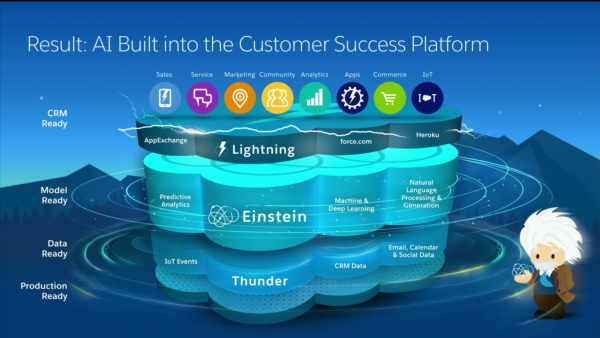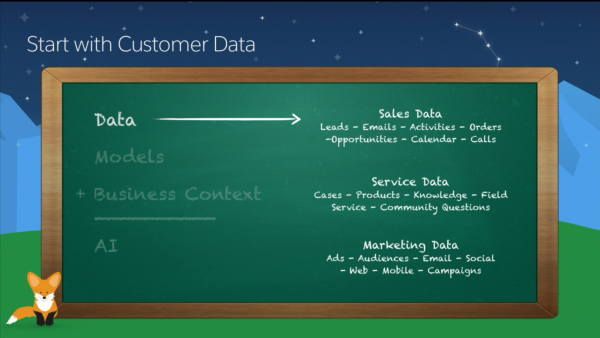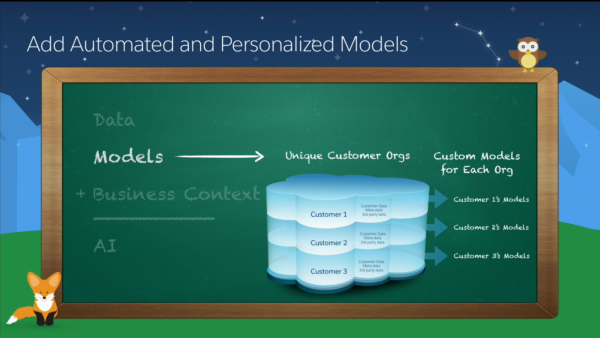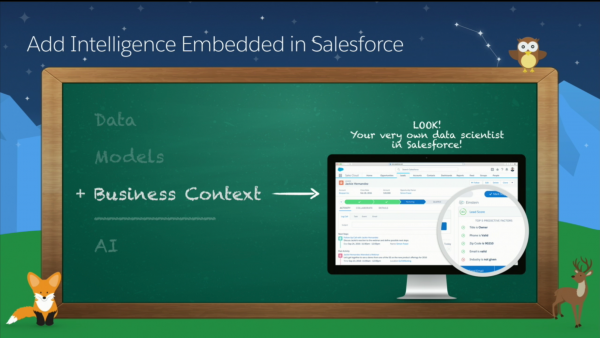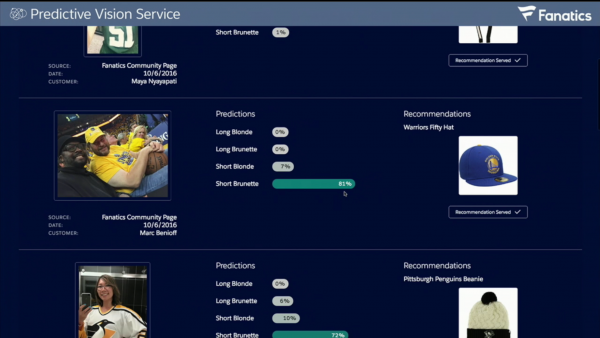During Dreamforce this week, Salesforce officially announced Salesforce Einstein, the company’s new artificial intelligence layer built into the platform. At the Salesforce Einstein keynote, Salesforce pushed the idea that anybody can be a data scientist because the platform has intelligence built right in. John Ball, the SVP & GM of Salesforce Einstein MC’d the session. John said that AI is going to transform not only the consumer world, but also the employee workplace.
AI is already all around you. Apple Siri, Amazon, and Facebook all use AI for their applications. But what about the rest of the companies? So far AI has been to hard because of the complexity and resource constraints.
Salesforce has gone out and spent $4B to acquire all the skills and technologies that have led to Salesforce Einstein. Salesforce and all these companies capture tons of data through IoT, email, social and Salesforce data itself. The platform then uses NLP, machine learning and predictive analytics to identify patterns, generate recommendations. The vision for Einstein is that anybody can take advantage of the AI-powered lighting components and predictive vision, sentiment services to build their own apps. In the picture below, you can see how Einstein is built right into the Salesforce platform.
Square, the financial transaction processing company, is using Salesforce Einstein within the Sales Cloud to provide real-time analysis and predictive analysis for leads. Taylor Cascino, head of sales at Square, spoke about how they plan to use Einstein to generate insights into the leads captured, scoring each of them and then telling Square which leads have the most potential.
Shubha Nabar spoke about how Einstein works behind the scenes. The following pictures summarize the various ways Einstein pulls together various components to work.
The Salesforce team turned to show how Fanatics.com can use Einstein to help marketers use artificial intelligence to analyze information from social media, recognize attributes about people posting pictures on their fan site, and then recommend products based on those attributes. Below is a picture of Einstein analyzing a fan photo and then suggesting a product based on the attributes. When that fan returns to the site, the identified product will be displayed prominently to them.
Salesforce announced Salesforce Research, a new research group focused on the future of AI and technology. The research group is working with vRad to prioritize brain scans with Einstein. Einstein scans 25,000 images per week and can classify these scans in under 5 seconds. This results in a reduction in patient diagnosis time by 50%. By prioritizing brain scans, vRad is able to focus on helping critical patients quicker.
Salesforce is making the Einstein platform available through APIs and demonstrated a predicted vision application. In this sample, you can feed the app a series of photos and Einstein will learn whether the house has a flat roof or pitched roof. Then you can use this learning to identify new pictures. This could help a solar panel company decide which product to target to a customer when they upload a picture to their site.
